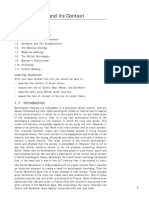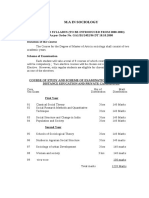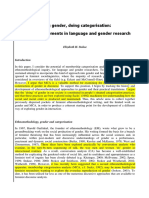0% found this document useful (0 votes)
1 views8 pagesintro-soc-summary
Sociology, coined by August Comte in 1838, is the scientific study of society, focusing on social interactions, structures, and problems. The discipline has evolved through influences such as political revolutions, the Industrial Revolution, and the rise of socialism, with early theorists like Marx, Durkheim, and Weber shaping its foundational concepts. Sociology plays a crucial role in understanding societal dynamics and addressing social issues, utilizing a defined methodology and approach.
Uploaded by
Ayan BordoloiCopyright
© © All Rights Reserved
We take content rights seriously. If you suspect this is your content, claim it here.
Available Formats
Download as PDF, TXT or read online on Scribd
0% found this document useful (0 votes)
1 views8 pagesintro-soc-summary
Sociology, coined by August Comte in 1838, is the scientific study of society, focusing on social interactions, structures, and problems. The discipline has evolved through influences such as political revolutions, the Industrial Revolution, and the rise of socialism, with early theorists like Marx, Durkheim, and Weber shaping its foundational concepts. Sociology plays a crucial role in understanding societal dynamics and addressing social issues, utilizing a defined methodology and approach.
Uploaded by
Ayan BordoloiCopyright
© © All Rights Reserved
We take content rights seriously. If you suspect this is your content, claim it here.
Available Formats
Download as PDF, TXT or read online on Scribd
/ 8



































































































